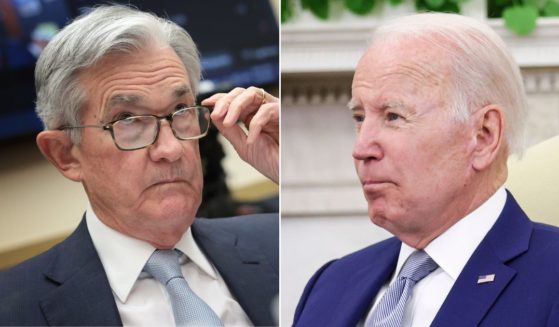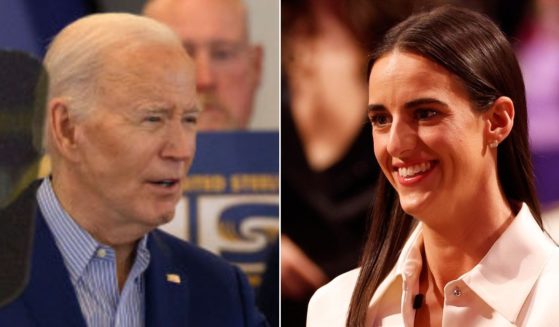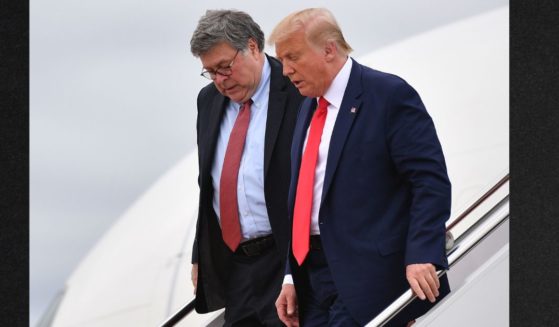But what about getting back in?
Trump Cancels Treaty That Allows Russian Planes To Spy on Our Military
The United States announced on Sunday that it has left a treaty that allowed Russia to conduct unarmed, reconnaissance flights over the U.S.
The Open Skies treaty was negotiated in 1992 and allowed each country signing the treaty in 2002 the right to observe the others, according to Fox News.
However, irked by the limitations that Russia imposed on America when it sought to conduct surveillance over Russia, the Trump administration decided earlier this year to pull out of the treaty.
Secretary of State Mike Pompeo said that ending the treaty was a matter of common sense.
“The Open Skies Treaty was meant to contribute to international security, but it has been twisted and perverted in its implementation and now serves Russian purposes inimical to that security,” Pompeo said in May when the administration decided to walk away from the agreement, according to a statement on the State Department website.
“A cornerstone of President Trump’s National Security Strategy is to protect the American people, the American way of life, and American security interests. As the President has made clear, the United States must take a clear-eyed look at any agreement through the prism of today’s reality and assess whether such agreement remains in the U.S. interest. After careful consideration, including input from Allies and key partners, it has become abundantly clear that it is no longer in America’s interest to remain a party to the Treaty on Open Skies,” he wrote.
Pompeo said the goal of the agreement was to achieve an open, trusting relationship.
“Russia’s implementation and violation of Open Skies, however, has undermined this central confidence-building function of the Treaty — and has, in fact, fueled distrust and threats to our national security — making continued U.S. participation untenable,” he said.
“Russia has flagrantly and continuously violated the Treaty in various ways for years. This is not a story exclusive to just the Treaty on Open Skies, unfortunately, for Russia has been a serial violator of many of its arms control obligations and commitments. Despite the Open Skies Treaty’s aspiration to build confidence and trust by demonstrating through unrestricted overflights that no party has anything to hide, Russia has consistently acted as if it were free to turn its obligations off and on at will, unlawfully denying or restricting Open Skies observation flights whenever it desires.”
Pompeo charged that Russia would not allow flights near disputed regions, and also “illegally placed a restriction on flight distance over Kaliningrad, despite the fact that this enclave has become the location of a significant military build-up that Russian officials have suggested includes short-range nuclear-tipped missiles targeting NATO.”
Pompeo said that Russia has used its flights over U.S. sites as a first step to develop attack plans.
“Moscow appears to use Open Skies imagery in support of an aggressive new Russian doctrine of targeting critical infrastructure in the United States and Europe with precision-guided conventional munitions. Rather than using the Open Skies Treaty as a mechanism for improving trust and confidence through military transparency, Russia has, therefore, weaponized the Treaty by making it into a tool of intimidation and threat,” he wrote.
Remaining in the agreement, Pompeo said, would “maintain an empty façade of cooperation with Moscow.”
“We remain committed to effective arms control that advances U.S., Ally, and partner security, that is verifiable and enforceable, and that includes partners that comply responsibly with their obligations. But we cannot remain in arms control agreements that are violated by the other side, and that are actively being used not to support but rather to undermine international peace and security,” he said, noting that if Russia changed its tune, the administration might change its mind when the six-month notification period ended.
The period expired Sunday, according to a news release posted on the State Department’s website.
“On May 22, 2020, the United States exercised its right pursuant to paragraph 2 of Article XV of the Treaty on Open Skies by providing notice to the Treaty Depositaries and to all States Parties of its decision to withdraw from the Treaty, effective six months from the notification date. Six months having elapsed, the U.S. withdrawal took effect on November 22, 2020, and the United States is no longer a State Party to the Treaty on Open Skies,” said Cale Brown, deputy spokesperson.
There are now more than 30 countries that are signatories to the treaty.
It’s unclear what might happen to the treaty in the administration of presumptive potential President-elect Joe Biden, according to the Omaha World-Herald.
“If the Biden administration wanted to rejoin the treaty, he could do it, but it would be cumbersome,” said Peter Jones, who helped negotiate the treaty .
Peter Brookes, a senior research fellow at the conservative Heritage Foundation, said he’s against a last-minute reprieve.
“We haven’t seen enough change in Russian behavior,” said Brookes, a Defense Department official under former President George W. Bush. “If there’s a Biden administration in January, they can look at this and decide whether they agree or disagree with the Trump administration’s decision.”
Truth and Accuracy
We are committed to truth and accuracy in all of our journalism. Read our editorial standards.












